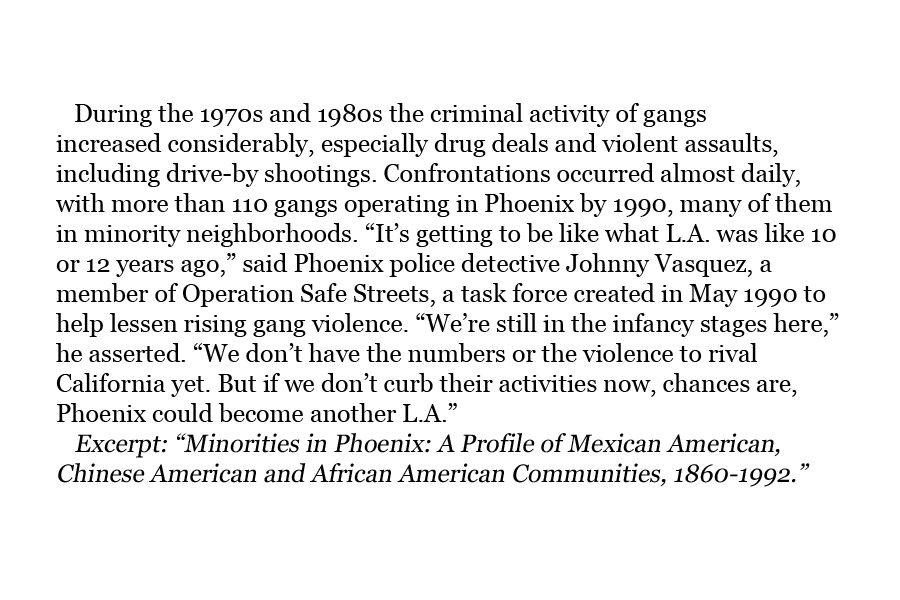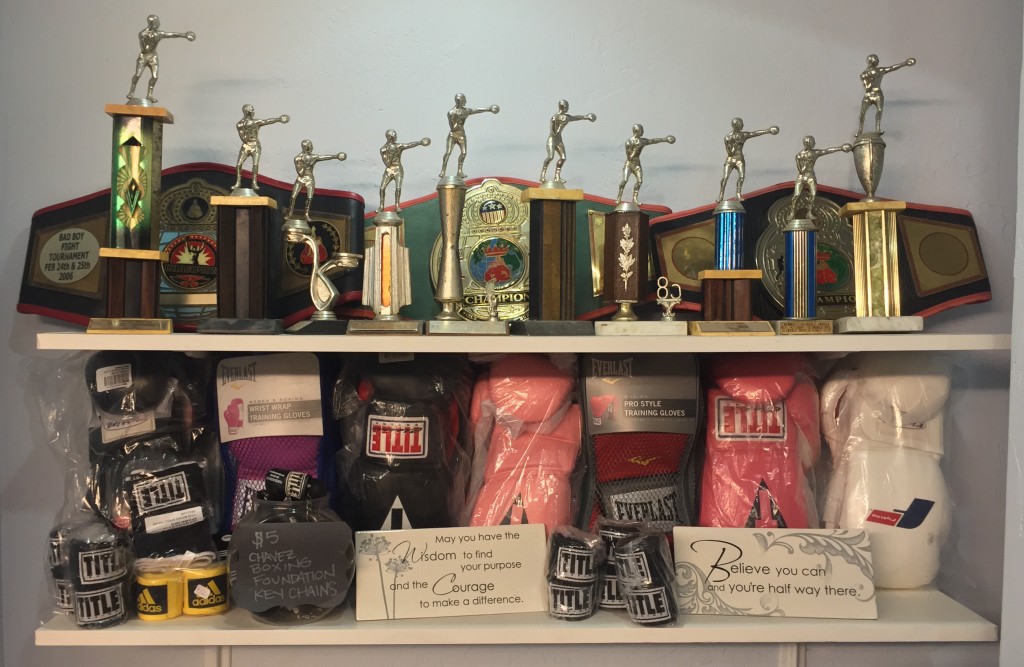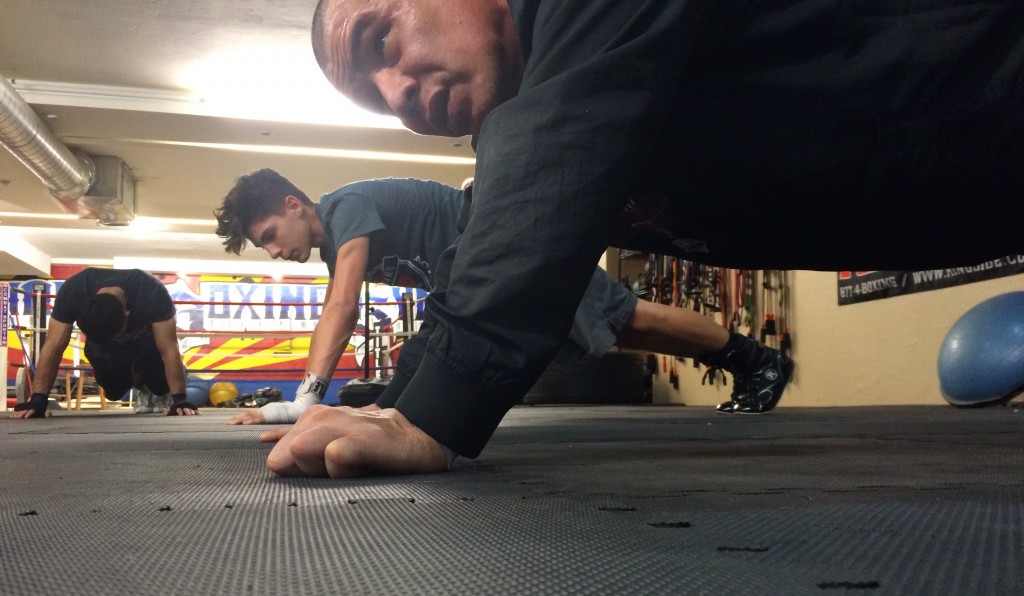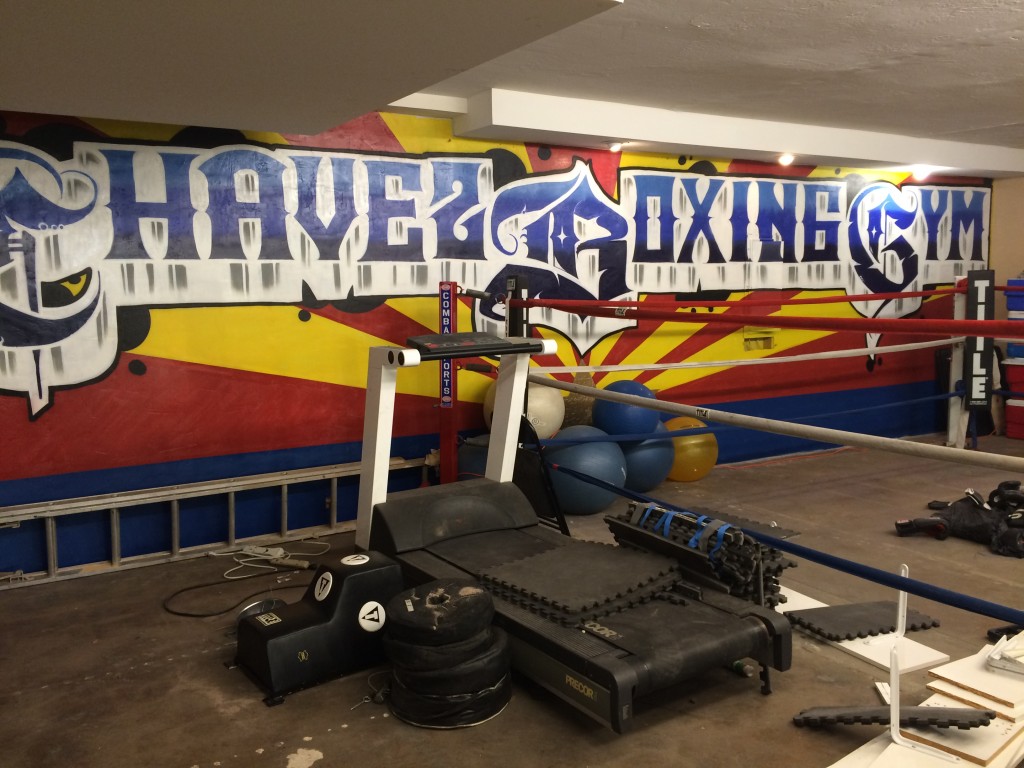Peter Chavez grew up in a single family household in Phoenix’s largely Hispanic Westside community. Chavez got into boxing in his teens despite the allure of gang life for kids in the neighborhood. He credits the sport’s discipline for keeping him in the gym and off the streets.
After a successful amateur boxing career, Chavez quit before his first professional bout to devote himself to being a full-time single parent. He began mentoring and training kids in the neighborhood, teaching them how to box.
Here’s a timeline of milestones and challenges Chavez has encountered.
He was born in 1966, the fourth of six children. His mother worked multiple jobs to support her children, who often spent a lot of time alone at home and in their neighborhood. Chavez says it was a rough neighborhood given the rise of local gangs.
Here’s what author Bradford Luckingham wrote about what the area was like in the 1970s and 80s (when Chavez was a young boy):

At age 15,Chavez got into a fight with a bully while playing football. He won that fight. A local boxer noticed Chavez’s “heavy” hands and encouraged him to pursue the sport. Chavez became the boxer’s mentee.
At age 17, Chavez won his first Golden Gloves title.

In his 20s, Chavez gave up his boxing career to raise his two toddlers by himself.
In his 30s, Chavez started to train his son and his son’s friends how to box in a small space at his local church. Chavez says gangs were not happy he was taking away some of their recruits. A lawyer encouraged him to start a nonprofit, the Chavez Boxing Foundation, established in 2007.

At age 39, after some encouragement from his son, Chavez entered a Toughman Competition and won. He went on to win two more at ages 41 and 45.
“It’s in your blood. Once you’re a fighter you’re always a fighter. Once a warrior, always a warrior.”
In 2011, Chavez opened his own gym where he was both a personal trainer for adults and a mentor for kids.
This year, he signed a five-year lease to rent a bigger home for the gym. He used his life savings for the deposit.

Today, gangs still have a presence in Chavez’s old neighborhood. In its most recent strategy report, the Arizona Criminal Justice Commission found approximately 75 percent of jurisdictions, including Phoenix, have active gangs. The commission reports the state has more than 32,000 gang members.
Currently, Chavez has 20 kids in his program. He estimates he’s mentored a few hundred boys and girls through his foundation.
